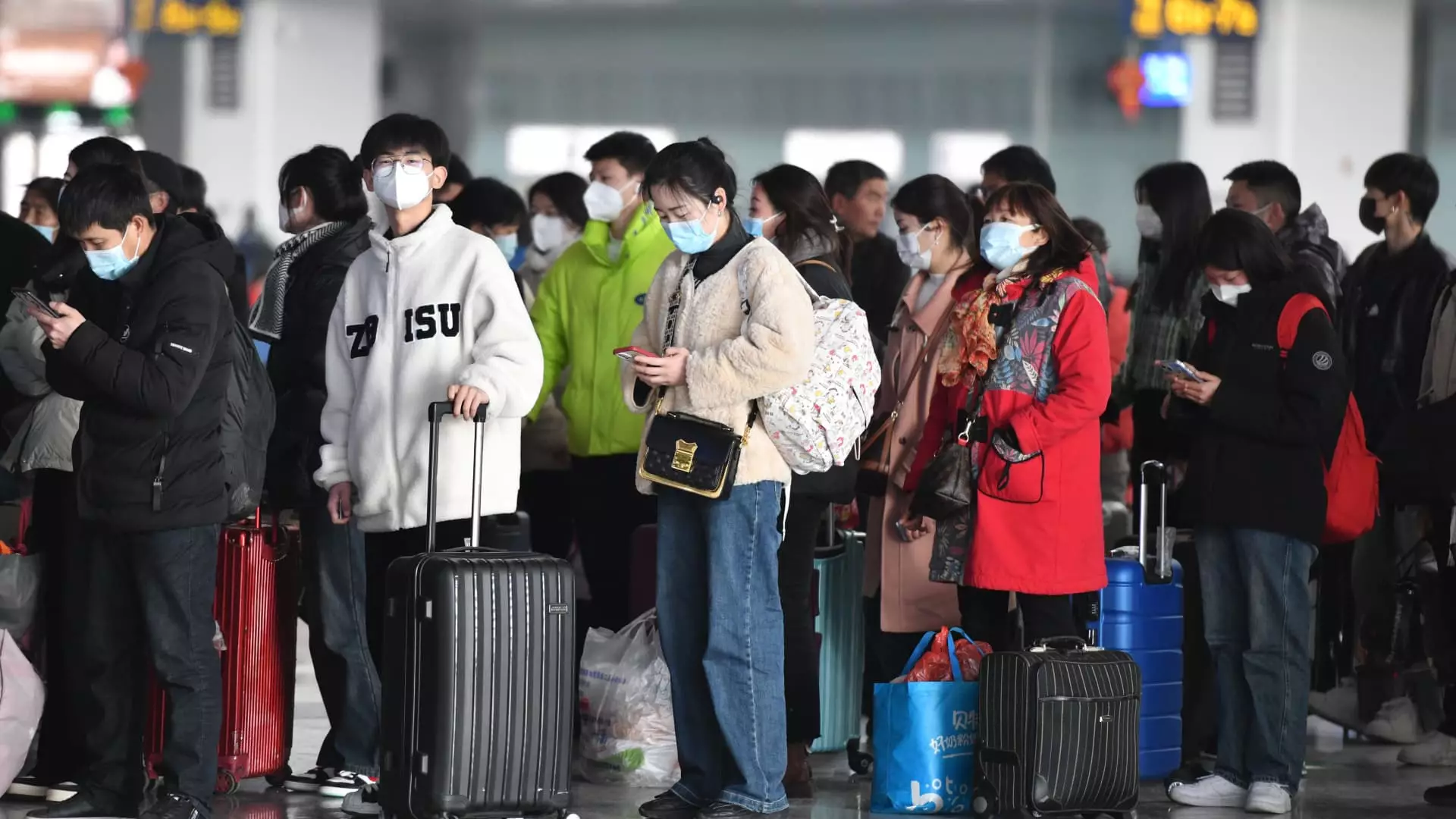The landscape of travel in China is undergoing a significant transformation, primarily driven by changing consumer behavior in the wake of economic challenges. As citizens navigate a complex financial environment, characterized by sluggish growth and reduced consumer confidence, the trend of last-minute travel bookings has become more prevalent. This article explores the implications of this shift for both travelers and the broader hospitality industry.
The economic climate in China has prompted a paradigm shift in the way consumers approach travel. Economic uncertainties, exacerbated by high unemployment rates and a persistent property crisis, have instilled a sense of caution among potential travelers. As discussed by industry leaders like Anthony Caputano, the decline in consumer confidence has manifested itself in notable changes in booking patterns. More specifically, consumers are increasingly opting for last-minute plans, with bookings being made a mere three days in advance.
This shift can be attributed to a broader trend towards spontaneous travel, driven by a desire to capitalize on last-minute deals. Research from Oxford Economics underscores this behavioral change, indicating that modern travelers are increasingly favoring flexibility and adaptability in their travel arrangements. However, this spontaneity poses significant challenges for the hospitality sector, which relies on advanced bookings for better demand forecasting and inventory management.
The Impacts on the Hospitality Sector
For the hospitality industry, the trend towards shorter booking windows presents a double-edged sword. On the one hand, it may indicate an eagerness to travel among consumers; on the other hand, it complicates revenue predictions and inventory management. Patrick Body from the Cheung Kong Graduate School of Business highlights the difficulty businesses face in aligning their operations with consumer behaviors marked by uncertainty.
The recent decline in average hotel rates, as noted by companies like Trip.com, further illustrates the impact of cautious consumer spending. As travelers become more frugal in their expenditure—extending beyond travel to everyday purchases—businesses may find their profitability threatened unless they adapt effectively to the new consumer landscape. The shift towards shorter booking windows may slight the hospitality sector’s growth, ultimately resulting in price competition that could harm the overall market.
Historically, China’s travel market has been characterized by relatively short booking periods. Data from 2019 indicated that 70% of hotel bookings on platforms like Trip.com were made within a three-day window, a trend that only intensified during the pandemic when travel restrictions added layers of uncertainty. Although the Ministry of Culture and Tourism reported increased domestic tourism during holidays like Labor Day in May compared to pre-pandemic levels, the average spending per traveler has yet to recover to 2019 figures.
According to Oxford Economics, this ongoing preference for short-haul trips—often to nearby cities or smaller communities—can stimulate local economies. While the overall travel demand is revitalizing, the economic reality of lower per-capita spending remains a concern for businesses positioned to serve the travel sector.
Despite the challenges, positive indications are emerging for the future of travel in China. Economists from Oxford Economics predict that upcoming travel demand, particularly during the Golden Week in early October, is likely to surpass pre-pandemic levels. Moreover, companies like Trip.com maintain a cautiously optimistic outlook for the latter half of the fiscal year, citing expectations for increased booking activity post-holiday.
This optimism is tempered by the recognition of the economic hurdles still faced by consumers. As noted by Trip.com’s CFO, the company grapples with limited visibility into future travel patterns due to the unpredictability of booking behaviors. However, this may also present a unique opportunity for the hospitality sector to innovate and tailor their offerings to engage consumers searching for value-driven experiences.
The evolution of travel habits among Chinese consumers reflects broader economic trends and a dynamic market landscape. While the shift towards last-minute bookings presents challenges for forecasting and revenue generation, it also opens avenues for innovation and adaptation within the hospitality industry. As both consumers and businesses navigate this uncertain terrain, the resilience and creativity of the travel sector will be tested in the coming months.

